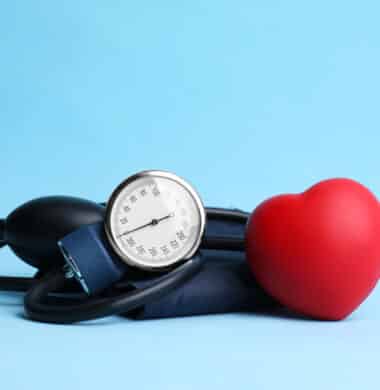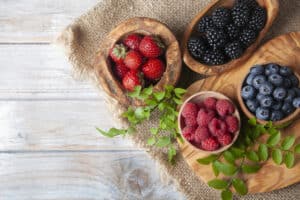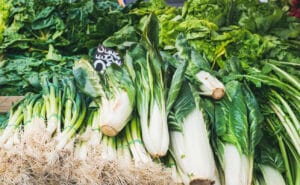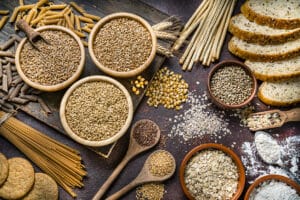9 Foods That Naturally Lower Blood Pressure

High blood pressure is a common condition impacting over 1 billion people worldwide. When high blood pressure isn’t properly managed, it can increase your risk of a variety of serious health conditions, including heart disease, stroke, and kidney disease.
While medication is commonly used to manage the condition, there are also steps you can take to naturally lower your blood pressure. Lifestyle changes such as reducing alcohol intake, lowering stress levels and exercising more frequently are all effective ways to lower your blood pressure. However, the adjustment you can make that will have the greatest impact on managing your blood pressure is to change your diet. Numerous studies have indicated that consuming the right foods can potentially reduce or even eliminate your need for blood pressure medication.
Manage High Blood Pressure with the DASH Diet
The DASH diet (Dietary Approaches to Stop Hypertension) has been designed to help individuals with high blood pressure manage their condition. This diet emphasizes eating plenty of:
- Fruits
- Vegetables
- Whole grains
- Low-fat dairy
- Fish
- Poultry
- Beans
- Nuts
- Other fiber rich foods
The DASH diet is heart-healthy and contains a variety of nutrients that are essential to naturally lowering your blood pressure, such as calcium, potassium and magnesium. The following foods are an essential part of the DASH diet. By consuming these on a regular basis, you can naturally lower your blood pressure and potentially reduce your dependence on medication to manage your condition.
Berries

Greek Yogurt
Greek yogurt is rich in minerals that help lower your blood pressure, such as calcium, magnesium, and potassium. Numerous studies have demonstrated a link between yogurt consumption and a reduced risk of high blood pressure.
Beets
Beets are high in nitrates, which are effective in relaxing blood vessels and lowering your blood pressure. If you’re not a fan of eating beets, you can also get the same positive impact from drinking beet juice. A study published by the American Heart Association found that people with high blood pressure who consumed 1 cup of red beet juice daily for 4 weeks experienced an average drop in blood pressure of 7.7/5.2 mm Hg over a 24-hour period.
Bananas
Bananas are rich in potassium, a mineral that has been found to lower blood pressure by alleviating tension in the walls of your blood vessels and by minimizing the negative effects of sodium. An average sized banana contains about 420 mg of potassium, which equates to roughly 9% of your recommended daily intake.
Leafy Greens

Make sure to include plenty of the following leafy greens in your diet:
- Spinach
- Kale
- Arugula
- Collard greens
- Swiss chard
Salmon
Salmon is an excellent source of omega-3 fats, which have been found to lower blood pressure by reducing inflammation and decreasing the levels of blood vessel constricting compounds in your system. To experience these benefits, the American Heart Association recommends consuming 2 three-ounce servings of salmon and other oily fish each week.
Oats and Other Whole Grains

- Whole wheat bread
- Quinoa
- Barley
- Brown rice
Pistachios
Pistachios contain a variety of nutrients essential for optimal heart health, and they have been linked to an increased ability to maintain healthy blood pressure levels.
Beans and Lentils
Beans and lentils are rich in fiber, protein, potassium and magnesium, making them an effective way to naturally lower your blood pressure. A study published in the American Journal of Hypertension found that regular consumption of beans and lentils lowered blood pressure in individuals with and without high blood pressure.
South Denver Cardiology Can Help You Manage Your High Blood Pressure
South Denver Cardiology Associates offers a wide range of services to help you maintain optimal heart health. Our team can help you manage high blood pressure in a variety of ways:
- Our Pulmonary Hypertension Center provides treatments and therapies to help lower your blood pressure
- You can work with our nutritional counselors to make adjustments to your diet that will help naturally lower your blood pressure
- Visit our medical fitness gym to create an exercise program that will supplement these efforts and provide you with an even greater ability to manage your blood pressure on your own
In addition, our team can perform a calcium heart score test to determine whether your high blood pressure has resulted in the development of heart disease.
Contact us today to schedule an appointment.
- 9 Tips to Reduce Holiday Stress - December 11, 2025
- 6 Tips for Exercising Outdoors with a Heart Condition - May 19, 2025
- Lifestyle Changes That Can Help Manage Arrhythmia - April 30, 2025
Sign Up
As with any health concerns, your specific treatment program should be discussed thoroughly with your primary care physician as well as any specialists who may need to be consulted – like a cardiologist.
Sign Up
